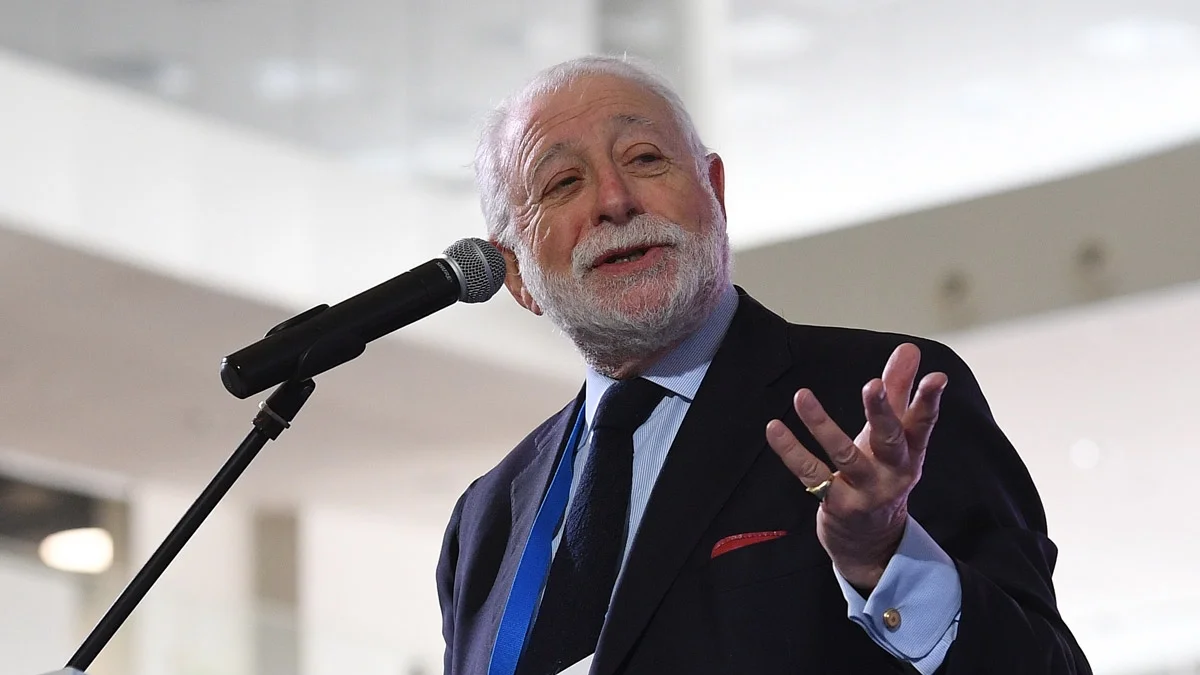15 February 2018, Thursday
Venue: Boris Yeltsin Center
Address: Boris Yeltsin St., 3, Yekaterinburg
9:30 a.m. Welcoming coffee and registration of participants

10:00 a.m. Welcoming addresses of distinguished guests of the Conference
Bublik Vladimir Aleksandrovich
Doctor of Law, Professor, Rector of the Ural State Law University, Yekaterinburg
Kovalevа Margarita Mikhailovna
Doctor of Philology, Professor, Yekaterinburg
Merzlyakova Tatyana Georgyevna
Human Rights Ombudsman of the Sverdlovsk region, Chairman of the Pardon Commission with the Governor of the Sverdlovsk region, Yekaterinburg
Pilipenko Yuri Sergeyevich
Doctor of Law, Professor, President of the RF Federal Chamber of Lawyers, Moscow
10:30 a.m. - 11:00 a.m. The Conference major report "Diversity of Counter-Crime Models in Criminal Law and Criminology"
Kozachenko Ivan Yakovlevich
Honored Worker of Science of the Russian Federation, Doctor of Law, Professor, Head of the Criminal Law Department, Ural State Law University, Yekaterinburg
11:00 a.m. - 11:15 a.m. Coffee-break

11:15 a.m. - 1:15 p.m. Plenary Meeting: "Diversity of Counter-Crime Models in Criminal Law and Criminology"
Crime has shadowed many spheres of the human life and thus predetermined the development of many institutions fundamental for a civilized society, such as law enforcement, judicial and penitentiary systems. The increased number of crimes committed in the society has changed the perception of this phenomenon depriving it of its obvious anti-moral connotation. In other words, the society has reconciled itself with crime and considers it as a routine fact. In such a situation it becomes difficult to distinguish between legal and illegal acts, especially in the sphere of business. At the same time, the society fails to evaluate the real magnitude of criminal activity which has grown global. The XXI century has seen territorial outbreaks of crimes where criminals are the law (for example, the prohibited organization of ISIS). A rapidly developing space of Internet has become an incubator of crime ranging from arms and drugs trafficking to different hacking attacks pursuing different aims.
Moderators:
Bublik Vladimir Aleksandrovich
Doctor of Law, Professor, Rector of the Ural State Law University, Yekaterinburg
Puchkov Denis Valentinovich
Candidate of Law, Advocate, Yekaterinburg
Speakers:
- Arlacchi Pino, Doctor of Philosophy, Professor, University of Sassari, Italy
- Dobrynin Konstantin Eduardovich, Advocate, Deputy Secretary of the RF Federal Chamber of Lawyers, Moscow
- Lopashenko Natalya Aleksandrovna, Doctor of Law, Professor, Saratov State Law Academy, Saratov. Topic: "On Some Counter-Crime Models in Criminal Law or Looking for a Cat in a Dark Room, Where There is no Cat"
- Molokov Andrey Viktorovich, Head of the Department of Architecture, Urban Planning and Land Use Regulation of Yekaterinburg City Administration, Yekaterinburg City Architect, Member of the Board of the Sverdlovsk Branch of the Union of Architects of Russia, Yekaterinburg
- Pilipenko Yuri Sergeyevich, Doctor of Law, Professor, President of the RF Federal Chamber of Lawyers, Moscow
- Tuzmukhamedov Bakhtiyar Raisovich, Professor of International Law, Judge (Ret.), Appeals Chamber, UN International Criminal Tribunals for Rwanda and for the Former Yugoslavia, Vice-President of the Russain Association of International Law, Moscow
Questions for discussion
- Do social upheavals contribute to the spread of crime in all possible spheres of life?
- What is the role of social upheavals happening against the background of the economic and political crisis?
- Is it possible to cope with crime and rid the humanity of criminals?
- Will we see the world of crime or the world without crime?
1:15 p.m. - 2:15 p.m. Lunch time

2:15 p.m. - 3:45 p.m. Panel discussion: "Economic Crime: Limits of Business Risks"
Venue: Atrium Center of the B.Yeltsin Center
Address: Boris Yeltsin St., 3, Yekaterinburg
The current society does not have a balanced model of interaction between criminal law and economy. Complicated economic relations and new economic institutions are inevitably reflected in the language of criminal law. The response from criminal law must be timely but not hasty. At the same time excessive criminalization and gaps in the legislation concerning liability for economic crimes significantly affect the economic relations.
Moderators:
Besedin Andrey Adolfovich,
President of the Ural Chamber of Trade and Industry, Yekaterinburg
Klyuvgant Vadim Vladimirovich,
Candidate of Historical Sciences, Deputy Chairman of the Council of the RF Federal Chamber of Lawyers on the Protection of Advocates’ Rights, Moscow
Speakers:
- Artyukh Elena Nikolayevna, Business Rights Commissioner in the Sverdlovsk region, Yekaterinburg
- Maifat Arkady Viktorovich, Doctor of Law, Professor, Ural State Law University, Yekaterinburg
- Monty Raphael, QC, Special Counsel, for and on behalf of Peters & Peters Solicitors LLP, IBA, founder of the Business Crime Committee, London, UK
- Neznamova Zinaida Aleksandrovna, Doctor of Law, Professor, Ural State Law University, Yekaterinburg
- Novolodsky Yury Mikhailovich, Vice-President of the Chamber of Lawyers of St.Petersburg, Vice-Chairman of the Federal Chamber for the Protection of Professional Rights of Lawyers, State Justice Councillor of the 2nd class, St.Petersburg
- Khomich Vladimir Mikhailovich, Doctor of Law, Professor, Director of the Scientific and Practical Center for Strengthening the Rule of Law and Order with the Prosecutor General’s Office of the Republic of Belarus, Minsk
Questions for discussion
- How to take into account the interests of economic subjects while amending the rules of criminal law?
- Should criminal law respond to the introduction of cryptocurrency in criminal scams?
- What are the limits of liability in business risks?
- Should we further separate liability for economic crimes?
2:15 p.m. - 3:45 p.m. Panel discussion: "Architectural space: a criminological aspect"
Venue: Atrium Center of the B. Yeltsin Center
Address: Boris Yeltsin St., 3, Yekaterinburg
Architectural space has direct impact on crime, sending a message and creating comfortable or uncomfortable conditions for committing an act. There is no obligatory requirement to take into account criminological factors in architectural engineering. Criminological knowledge is applied occasionally, if at all, while creating or reconstructing new spaces and, thus, leading to two negative consequences: creating a dangerous space and producing an illusion of safety.
Moderators:
Bril Andrey Borisovish,
Candidate of Economics, Vice-President of the RF Managers and Developers Guild, Board of Directors Chairman of Corin Holding, Yekaterinburg
Siegmunt Olga,
Ph.D., Scientific Advisor, Department of Criminological Research and Statistics of the Central Police Department, Lower Saxony, Germany
Speakers:
- Veniaminov Vladimir Gennadyevich, Deputy Minister of Construction and Infrastructure Development of the Sverdlovsk region, Chief Architect of the Sverdlovsk region, Yekaterinburg
- Gilinsky Yakov Ilyich, Doctor of Law, Professor, Russian State Pedagogical University after A.I.Herzen, St. Petersburg. Topic: "Social Control over Crime in Postmodern Society"
- Gorazd Mešhko, Doctor of Law, Professor, Maribor University, President of the European Criminological Society, Slovenia
- Naumov Anatoly Valentinovich, Doctor of Law, Professor, All-Russia State University of Justice (RLA of the RF Ministry of Justice), Member of the Moscow Union of Writers, Moscow
- Radosteva Yulia Viktorovna, Candidate of Law, Associate Professor, Ural State Law University, Yekaterinburg
- Sharov Gennady Konstantinovich, Candidate of Law, Vice-President of the RF Federal Chamber of Lawyers, Moscow
Questions for discussion
- How to build a model of interaction between architects and criminologists?
- Do we need legislative decisions to prevent "architectural space" crimes?
- Can decisions based on architectural and criminological factors be misleading and creating an illusion of safety?
- Is the high cost of engineering based on architectural and criminological factors justified?
- Does “the penitentiary architecture” contribute to achieving the purposes of punishment?
3:45 p.m. - 4:00 p.m. Coffee-break

4:00 p.m. - 5:30 p.m. Panel discussion: "Cybercrime as a new challenge to humanity: problems and their possible solutions"
Venue: Congress Center of the B. Yeltsin Center
Address: Boris Yeltsin St., 3, Yekaterinburg
The darknet, accounts uncontrolled by the fiscal system, virtual logistics, instant exchange of information and anonymity have created an ideal atmosphere for cybercrime. Many spheres of human activity have also been shifted into virtual reality: communication, training, bank transactions, purchase and storage of information. The society has faced a huge number of challenges arising out of a rapidly changing world of information.
Moderators:
Gemedzhiev Georgy Abdurakhmanovich,
Co-founder, Executive Director of DataData Company, Yekaterinburg
Zscheyge Holger,
General Director, Publishing House Infotropic Media, Moscow
Speakers:
- Andò Bruno, Doctor of Law, PhD, Law firm "Perroni e Associati", Rome, Italy
- Baljak Miroslav, Doctor of law. professor at the Human Rights and Legal Ethics course Tuzla university, Bosnia and Herzegovina
- Belsky Kirill Evgenievich, Partner, Koblev&Partners Law Firm, Moscow
- Davydov Alexander Anatolyevich, President of Ural Cluster of Information Technologies, Chairman of the Board of Directors, NAUMEN Company, Yekaterinburg
- Inogamova-Hegai Lyudmila Valentinovna, Doctor of Law, Professor, Moscow State Law University named after O.E.Kutafin, Moscow
- Neznamov Andrey Vladimirovich, Candidate of Juridical Sciences, Head of the Research Center for Problems in Regulation of Robotics and AI, Moscow
Questions for discussion
- How to protect a person from virtual threats?
- Is the current legislation sufficient to counter cybercrime?
- Should we reconsider the concept of the object of crime taking into account new information realities?
- Should virtual objects be protected by criminal law?
4:00 p.m. - 5:30 p.m. Panel discussion: "Do social upheavals provoke crimes? Who is to be blamed? What to do?"
Venue: Congress Center of the B. Yeltsin Center
Address: Boris Yeltsin St., 3, Yekaterinburg
Wars, revolutions and conflicts at different levels never cease, not even for a minute. Our history proves that the society is never ready to cope with a huge wave of crimes as a result of social upheavals. Nevertheless, social upheavals as a contributing factor are not studied thoroughly by criminologists. If criminology and criminal law experts are able to elaborate a model of response to social upheavals, it will enable to avoid excessive costs of conflicts, reduce possible damage, prevent an increase of crimes in certain spheres and, ideally, contribute to coping with unfavorable consequences by the society.
Moderators:
Pilipenko Yuri Sergeyevich,
Doctor of Law, President of the RF Federal Chamber of Lawyers, Moscow
Speakers:
- Golik Yuri Vladimirovich, Doctor of Law, Professor, Moscow Academy of the Investigative Committe of the Russian Federatione Moscow
- Dippe Andreas , Advocate, Derra, Meyer&Partner Rechtsanwälte, LLM, Berlin, Germany
- Kibalnik Aleksei Grigoryevich, Doctor of Law, Professor, North Caucasus Federal University, Stavropol
- Samson Benjamin R., Doctor of Law, Deputy Prosecutor, Manila, the Philippines
- Roizman Evgeny Vadimovich, Head of Yekaterinburg, Chairman of the City Duma, Yekaterinburg
- Sreto Nogo , Doctor of Law, Professor, President of the Serbian Royal Academy of Scientists and Artists, General Secretary of the International Association of International Criminal Law, Belgrade, Serbia
Questions for discussion
- What social upheavals are the most contributing factors to crime?
- What models and examples of response are the most acceptable?
- What are typical features of crime in most crucial periods in the life of the society?
- What impact does crime have on overcoming the crisis?
8:00 p.m. – 00:30 a.m. Puchkov AfterParty with special guests invited
Venue: Dom Pechati (The House of Print)
Address: 49, Lenin St., Yekaterinburg


